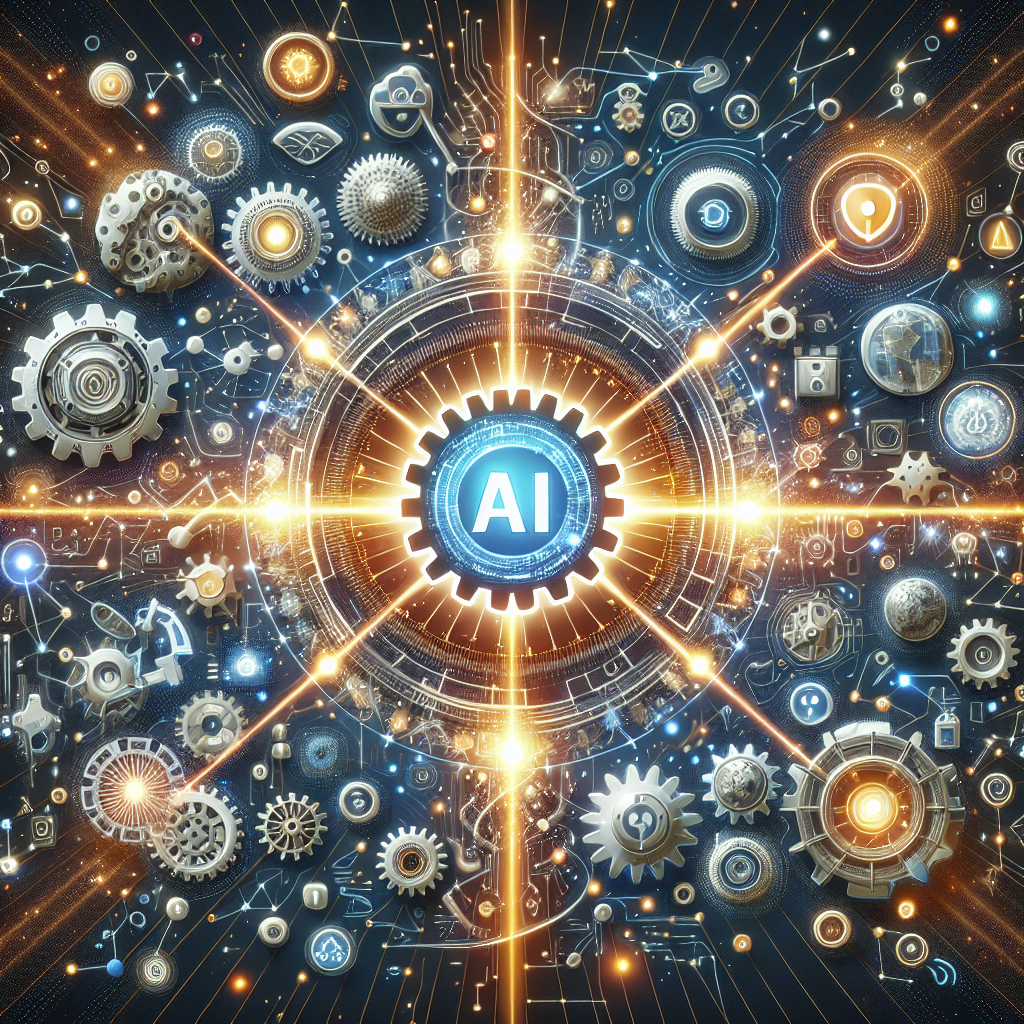As we enter the 21st century, artificial intelligence (AI) has shifted from a conceptual idea to a vital technology, instigating remarkable transformations across various sectors. This change extends beyond mere automation; it incorporates deep learning, natural language processing, and sophisticated data analytics, reshaping industries and revolutionizing business models. With AI’s continual evolution, the ramifications for productivity, effectiveness, and innovation are significant.
1. Healthcare: Precision Medicine and Beyond
A major breakthrough in AI is evident in the healthcare sector. Algorithms are now capable of analyzing extensive datasets to uncover patterns that might elude human practitioners. AI-powered systems are personalizing treatment, forecasting patient outcomes, and even aiding in intricate surgeries.
Key Developments:
- Diagnostic Tools: Machine learning models can assess medical images, such as X-rays and MRIs, with an accuracy level similar to experienced radiologists. This accelerates diagnosis and reduces human error.
- Drug Discovery: AI minimizes the time and expenses associated with drug development. By evaluating biological data, researchers can quickly pinpoint promising compounds, resulting in swifter advancements in treatment.
2. Finance: Risk Management and Customer Experience
The finance sector is undergoing a profound transformation due to AI. From fraud detection to enhanced customer service, AI applications are optimizing operations and improving decision-making processes.
Key Developments:
- Fraud Detection: AI systems analyze transaction data in real time to detect unusual patterns indicative of fraud. This enhances security, safeguarding both clients and institutions.
- Robo-Advisors: AI-driven platforms now offer personalized investment guidance, democratizing financial planning services that were once limited to affluent individuals.
3. Manufacturing: Smart Production and Supply Chain Optimization
AI is transforming the manufacturing landscape through automation and greater efficiency. Smart factories equipped with AI technologies facilitate real-time decision-making and predictive maintenance.
Key Developments:
- Smart Robotics: AI-enhanced robots can collaborate with humans, adjusting to their environments and boosting productivity while upholding safety standards.
- Predictive Maintenance: Machine learning algorithms evaluate sensor data from machinery to anticipate failures before they occur, minimizing downtime and maintenance expenses.
4. Transportation: Autonomous Systems and Traffic Optimization
The transportation industry is experiencing remarkable advancements through AI, particularly with the rise of autonomous vehicles and intelligent traffic management systems.
Key Developments:
- Self-Driving Cars: Companies like Tesla and Waymo harness AI to develop vehicles capable of navigating with minimal human input, aiming to decrease traffic accidents and transform urban mobility.
- Traffic Management: AI systems study traffic patterns to optimize signal timings, alleviating congestion and enhancing road safety.
5. Retail: Personalized Shopping Experiences
In retail, AI is not only boosting operational efficiency but also tailoring customer engagements.
Key Developments:
- Recommendation Engines: E-commerce platforms leverage AI to analyze buying behavior, offering customers customized product recommendations that drive sales conversions.
- Inventory Management: AI forecasts demand fluctuations, optimizing stock levels to ensure product availability without overstocking.
6. Education: Customized Learning Journeys
AI is revolutionizing education by crafting personalized learning experiences that cater to each student’s unique needs.
Key Developments:
- Intelligent Tutoring Systems: AI platforms offer real-time feedback and suggestions, adjusting curricula to match skills and learning speeds.
- Administrative Efficiency: AI automates administrative duties, enabling educators to devote more time to student engagement rather than paperwork.
Conclusion: The Future of AI in Industry
As AI technology progresses, its incorporation across various fields will accelerate, fostering new opportunities and challenges. Companies must adapt to this swiftly changing environment by embracing AI and cultivating a culture of innovation. Ethical considerations and the prospect of job displacement should be addressed to ensure a balanced approach to this AI evolution.
The horizon looks promising, with AI steering extraordinary change throughout the global economy. Industries that utilize the potential of AI will not only enhance efficiency and productivity but will also transform how society interacts with technology, fundamentally reshaping our reality.

